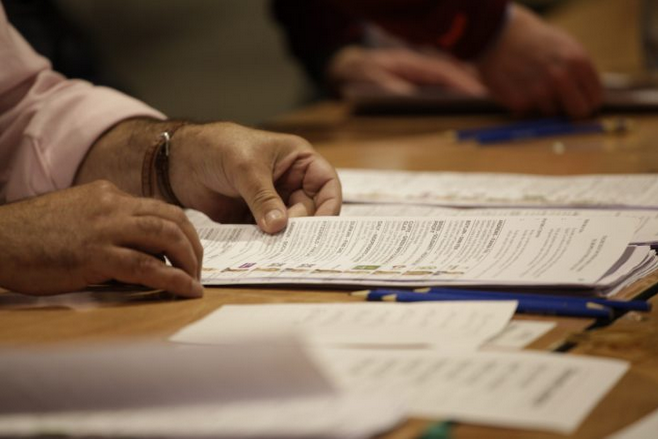
Yes, the seismic shift of the election was well and truly with Sinn Fein (excluding new Green deputy Roderic O’Gorman and his partner Ray – Note 1) as the party’s position on housing and health reverberated with an electorate hungry for change.
From early on in the campaign, it was clear that climate change and biodiversity decline, the relatively unseen and long-term existential threats to Irish society, would play second fiddle to more immediate and pressing social issues.
Many commentators were swift to conclude that this was a sign that the Green Wave building from last year’s local and European elections had petered out, a mere ripple lapping against the shores of the exit poll on Saturday night. Note 2.
The final tally of elected TDs tells a different story, however. The Greens have quadrupled their seats to 12 (giving the party speaking rights) and is it the only party aside from Sinn Fein and Aontú to register an increase in first preference votes since the last election in 2016. Note 3.
The party also gained their first TDs outside of Dublin since Mary White’s election in Carlow in 2007, and increased its first preference votes and transfer rates across various rural constituencies where it has previously barely registered as a blip on the radar.
The results give a clear indication that the Green Wave is still crashing against the electorate, however, the wave also appears to be available in shades of purple and maroon as the Social Democrats (SocDems) and People Before Profit (PBP), both with strong climate and nature positions, returned 11 seats between them.
Whether in opposition or in some form of coalition as looks most likely, the three parties will surely have an impact on the direction that the next Dáil takes in tackling both the climate and biodiversity crises. So where do their positions line up or divide and how do they align with the big three still in with the chance of leading the next Government?

Climate targets
PBP and the Green Party stand out as the two parties with the most ambitious climate policy platforms.
While some commentators have questioned the proposed funding streams for PBP’s proposals, there is no doubt that it has laid out the most radical climate call, looking for a 50-plus per cent reduction in emissions by the end of the decade.
The Greens are also quite ambitious, and want to hit net zero carbon emissions by 2040, a full decade ahead of most other parties.
All three parties have also endorsed the One Future Ireland civil society campaign that is calling for wide-ranging ambition across various sectors to reach an emissions reduction target of at least eight per cent a year over the lifetime of the next Government.
Fine Gael and Fianna Fáil did not sign up to the pledge, and while Sinn Fein has done so, none of the big three have shown the level of policy ambition required to hit the proposed target in their election manifestos.
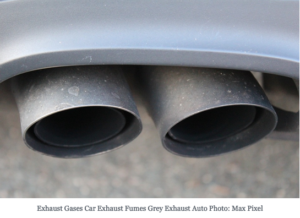
Carbon Tax
Although only ever going to play a supporting role in meeting our emissions reductions targets, the planned increase in the carbon tax is likely to be a key stumbling block in coalition formation. Both the SocDems and the Greens want to see funds generated by the tax ring-fenced, although they do have different ideas on where the money should go exactly.
The SocDems want to use the revenue to fund the retrofitting of homes, improve electric vehicle infrastructure, and other low carbon measures of benefit to all income brackets. The Greens, meanwhile, want to see revenue go back to citizens via increased social welfare payments and tax credits.
The Greens are also proposing the most ambitious increase in the end-of-decade carbon tax target, seeking a €100 per tonne tax by 2030 as compared to €80 per tonne of carbon proposed by Fianna Fail and Fine Gael who both have different ideas from the Greens on how revenue should be used.
PBP are adamantly against any further increases in the tax and are in favour of more heavily taxing the profits of large fossil fuel corporations. Its position lines up more closely with Sinn Fein as it is also against increasing the tax that it sees as regressive. Any negotiations with the Greens, in particular, may hit a wall on this issue.
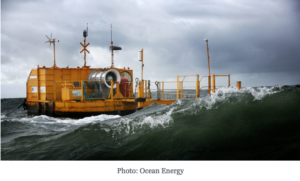
Energy
The Greens and PBP are clear that they will not support any projects that could see fracked gas imported into Ireland and also want to ban future exploration for both oil and gas.
All three also agree on the phasing out of peat and coal power stations, although both PBP and the Greens want to see the end date for both moved up from the planned 2023 (peat) and 2025 (coal) period.
The SocDems are more vague on a transition away from fossil fuels, acknowledging the “need to continue the use of fossil fuels in the interim” and to phase out offshore drilling.
The position of all three would not sit well in a coalition with either Fianna Fail or Fine Gael, who are both in favour of new gas terminal infrastructure citing security of supply concerns as the key motivating factor behind their contentious position. Sinn Fein, on the other hand, has said that it opposes the any new project “that will lock us into fossil fuel use for decades” and is against the importation of fracked gas. Note 4.
In terms of renewables, the Greens want to oversee the development of five gigawatts of offshore wind in Irish waters by 2030. PBP are also keen to invest heavily in wind over the next decade, and the SocDems want to establish a new Offshore Wind Development Agency to attract investment. All three also support micro-generation, although the SocDems position on supporting feed-in tariffs in the future is unclear from its manifesto.
Sinn Féin plans on prodding semi-state companies like ESB and Bord na Móna to take the lead in developing renewable energy and has also promised to amend legislation to facilitate a speedier roll out of offshore wind, wave and tidal projects. Like the SocDems, it is in favour of a centralised, State-owned offshore wind development network that would allow Eirgrid to reach 80 per cent renewables by 2030.
Both Fianna Fail and Fine Gael share a lesser, but still ambitious, target of generating 70 per cent of electricity from renewables by 2030 and also want to see offshore wind play a key role.
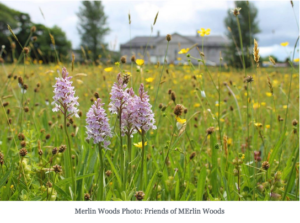
Biodiversity
Both the Green Party and the SocDems are very strong on biodiversity measures and their policy positions combined would essentially cover the whole gamut of changes required to make some serious strides in how we both enhance and protect biodiversity.
The SocDems position was no doubt largely informed by newly elected deputy Jennifer Whitmore who has an ecology background and could play an important role in environmental policy alongside the Greens if both are included in any future coalition. Note 5.
Of the big three, Fianna Fail has the most detailed plans for biodiversity, including increasing funding for nature bodies and environmental NGOs, as well as achieving the 119 targeted actions in the National Biodiversity Plan (although it is vague on how this would be achieved).
In terms of tree cover, all three smaller parties are in favour or rewarding farmers for planting native woodland and want to ramp up tree cover across Ireland while moving away from the conifer plantation clearfell model to a continuous cover native woodland system.
This does not sit well with Fine Gael’s target of 8,000 hectares of new forest per year – the Greens for example want to least 20,000 hectares per annum – that would be 70 per cent conifer plantation.
Sinn Fein is vague on forestry targets but does want to see a move away from the current plantation model. Fianna Fail also wants to incentivise the planting of native trees but as part of a “balanced regional afforestation policy” that would still include large planting of conifers.
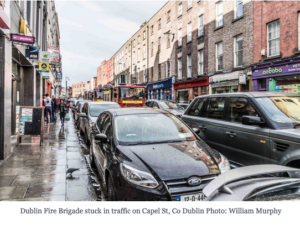
Transport
All three have laid out a vision for a radical rebalancing of priorities toward a new low-carbon, public and active-led transport model for Ireland. They want ramped up spending on public transport (including electrifying the rail systems) and on walking and cycling infrastructure in both urban and rural environments. All three want to see National Development Plan (NDP) funding shifted away from road infrastructure and toward public transport.
PBP’s tent-pole policy here is free public transport for all that would cost around €570m annually based on current fare rates and travel frequency, while the Greens want to start off by offering free transport to students and a capped-fee system for other users.
The SocDems also want to abolish charges for school transport, to reduce public transport fares and to examine alternative no or low-fare models that are in place in other EU states. Both the Greens and PBP also want to see taxation brought in on aviation fuel.
Sinn Fein does want to reduce public transport fares and to inject €30 million into Bus Éireann to diversify its fleet away from fossil fuels. Fianna Fail wants to prioritise the electrification of rail, free public transport for children and to increase funding for the urban national cycling strategy.
However, much like Fine Gael, it is also keen to implement the National Development Plan in its current form that retains road infrastructure at its core. Fine Gael’s climate-linked transport policy is largely dependent on electric vehicle infrastructure.
Retrofitting
All three want to roll out ambitious national retrofitting schemes, with PBP and the Greens, in particular, looking to spend big on a massive state-wide retrofitting programme. All three are looking to establish a pay-as-you-go interest-free or low-interest loan schemes for householders that would be paid back over a long period of time.
The ambitious targets set by PBP and the Greens would most closely align with Fine Gael’s targets, although the means to assist homeowners to achieve the targets differ. Both Fianna Fail and Sinn Fein have outlined far smaller retrofitting targets that the Greens have said are nowhere near the ambition required over the next decade.
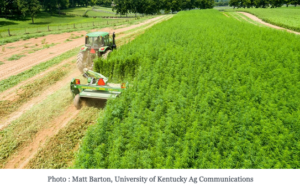
Agriculture
There is a strong degree of agreement between the three parties on how to rapidly reduce emissions in the agricultural sector, including a shift in agriculture toward a close-to-nature model with payments to farmers for eco-system services and diversification away from beef and dairy into the likes of organic horticulture and tillage.
The Greens have adopted an overarching strategy of rewarding farmers for carbon sequestration, biodiversity restoration and clean energy production that would be largely financed through the reformed Common Agricultural Policy (CAP).
PBP have outlined more radical plans on how to raise funds, including heavily taxing and/or nationalising major agri-corporations. It also wants to see the dairy herd reduced by 50 per cent, while the Greens has focused on plans to reduce the suckler herd.
Neither plan would sit well in a coalition with any of the three major parties who, aside from a general agreement that farmers need to be paid more for ecosystem services, are not keen to see any reduction in the herd or a move away from beef and dairy.
In addition, the proposals would not be welcomed by many independent deputies elected to the Dáil , most of whom are coming from rural, agricultural constituencies.
Independent roulette
Whichever of the big three comes to power, their coalition of the willing will have to rely on a minimum of 13 (Fianna Fail-led) to 16 (Fine Gael-led) independent TDs.
In the event of Sinn Fein forming a majority government, it would need the support of 14 independents, even with the full support of the Greens, PBP, the SocDems and Labour (although party leader Brendan Howlin does not appear keen to prop up Sinn Fein).
Where this support will come from and still satisfy the eco-criteria of the Green Wave parties is difficult to see as, aside from Joan Collins, Thomas Pringle, Marian Harkin and Catherine Connolly, there are very few independent deputies who appear to share the left’s sentiment on many environmental and social issues.
Notes
Note 1. twitter.com/unapower/status/1226636217367830529?s=20
Note 2. Harry McGee, “Election 2020: Exit poll confirms health, housing, homelessness of most concern to voters,” The Irish Times (9 Feb 2020). bit.ly/39NFFpY
Note 3. www.rte.ie/news/election-2020/results/#/national
Note 4. Shamim Malekmian, “Manifesto Watch: Sinn Fein on climate and biodiversity,” Green News (4 Feb 2020). bit.ly/39MGdMT
Note 5. www.jenniferwhitmore.ie/about-jennifer/
Originally published in Green News (11 February 2020) at greennews.ie/the-green-wave-shades/
Niall Sargent is the Editor of The Green News. He is a multimedia journalist, with an MA in Investigative Journalism from City University, London.
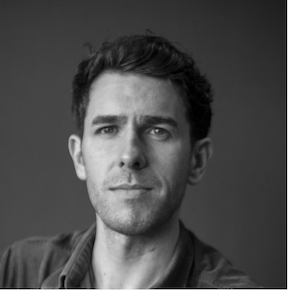


No comments yet, add your own below